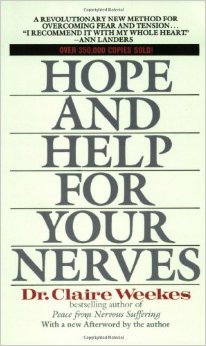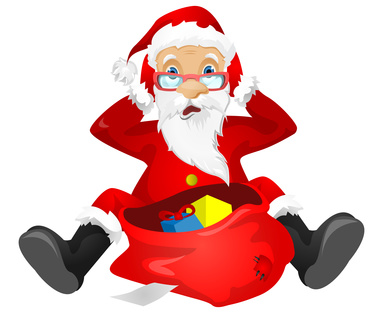Holiday gatherings can be overwhelming for introverts. This post, from May 2015, offers five tips to help you survive.
A friend invited me to attend a three-day camping/music festival in the mountains, an hour drive from where I live. For an introvert, three days amongst hordes of people and loud music is nerve-wracking.
“Sounds fun!” I said, and immediately began fretting.
Will there be port-a-potties? I hate port-a-potties. What will I do with my stuff: my lawn chair, backpack, snacks, meals, bottled water, book, writing tablet, sleeping bag, and whatever comfort crap I lug with me? And then there’s the hour drive up winding mountain roads. Driving is not my forte. And chitchat–I loathe chitchat! I never know what to say.
But I told myself: it will be good for you to get out from behind the keyboard and mingle. So I bought a ticket.
Except I nixed the camping part.
And the three days.
I committed to one day. For a few hours.
Do you see how my introverted brain narrowed my experience so quickly? And still I worried! I worked myself into a nervous wreck. A weekend of fun turned into something that required me to gird my loins well in advance.
Why?
Because of the thoughts I entertained. Those thoughts were unwelcome guests, crowding the space in my mind.
I tried smiling. It temporarily lulled my body into thinking that all was safe. I tried meditating, focusing on my “third eye,” directing my gaze upwards. It eased my racing heart, somewhat. I tried engaging in soothing self-talk. The only difference between today and any other day is the knowledge that I’m going to a music festival, and the dysfunctional thinking that I’ve attached to that future experience. But in spite of all the self-talk and relaxation techniques I still felt like damaged goods, unable to look forward to an event that most people would find enjoyable.
What’s the matter with me!? I agonized.
In desperation, I turned to the book The Introvert Advantage: How to Thrive in an Extrovert World. The author, Marti Olsen Laney, devotes a whole chapter to attending parties and other such events. What I read gave me new insight into myself, and changed my outlook. By Saturday morning, I was eager to hit the road.
What were Laney’s tips?
First: you are not damaged goods. You’re an introvert, and crowds will suck the energy from you. Extroverts thrive on gatherings and other people; it’s how they recharge. Introverts recharge by going within. So it’s natural to feel anxious before attending a big event.
Here are five tips to make the experience less overwhelming:
1. Relax the day beforehand to conserve your energy.
I spent the afternoon in the park reading, and after a leisurely dinner, I watched a DVD before going to bed.
2. When you arrive at the event, acclimate yourself gradually.
Stand on the fringes and take it all in. Allow other people to approach you. When you’re feeling comfortable, proceed into the belly of the crowd.
When I arrived, I greeted my friend, located the restrooms (yay, no port-a-potties!) and slowly made my way to the main stage. I set up my lawn chair in the back of the crowd next to three people sitting in lawn chairs and reading books. My kind of people.
3. Take breaks as needed.
Go to the restroom to escape, or step outside and take in some air.
I wandered off by myself to take in the breathtaking view of the redwoods and the fog drifting in from the coast, and then found a small jazz trio jamming in the mess hall.
4. Set a time limit for how long you’ll stay.
I decided to give myself until 6:00, so I wouldn’t have to drive down the mountain in the dark. I ended up staying until 7:00, because I was having such a great time.
5. Schedule downtime the following day to recharge your batteries.
It was back to the park for me, with a good book.
I am happy to report that the experience could not have been more perfect.
Takeaways this week:
The Introvert Advantage by Marti Olsen Laney. If you’re an introvert and want to understand why you are the way you are, or you’re an extrovert who wants to understand introverts, get this book. Includes great tips on how to find balance in an overwhelming world.
Respect your strengths as an introvert (creativity, good listening skills, lasting relationships, persistence, concentration…to name a few), and the requirements needed to protect your energy. Constant activity and loud noise is a drain. That’s okay. Take breaks as needed, set a time limit for participation, and rest before and after engagements.
Conversations with groups can be intimidating. It takes longer for introverts to formulate ideas when conversing (it’s how are brains are wired), but that’s okay. A good line to use: “Give me time to think about it,” or “I’ll get back to you on that.” Or just smile, maintain eye contact, and let the extroverts do all the talking. They love to!



